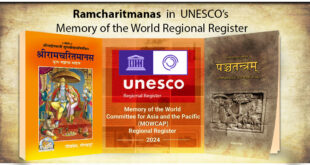Syllabus: Issues relating to development and management of Social Sector/Services relating to Health, Education, Human Resources.
THE GIST
- The Supreme Court is set to hear on August 18, petitions challenging the Patna High Court’s verdict upholding the Bihar government’s ongoing caste survey.
- The Census conducted at the beginning of every decade does not record any caste data other than for those listed as Scheduled Castes (SC). In the absence of such a census, there is no proper estimate for the population of OBCs, various groups within the OBCs, and others.
- The petitions in the Supreme Court contend that the State’s June 6, 2022 order notifying the survey is unconstitutional since only the Centre is exclusively authorised to conduct a census under the Constitution.
The story so far:
The Supreme Court is set to hear on August 18, petitions challenging the Patna High Court (HC)’s verdict upholding the Bihar government’s ongoing caste survey.
Caste-based survey
- On January, the State government launched a two-phase caste survey in Bihar
- Stating that detailed information on socio-economic conditions would help create better government policies for disadvantaged groups.
- The survey is estimated to collect the socio-economic data for a population of 12.70 crore in the 38 districts of Bihar.
- The first phase of the survey, which involved a house listing exercise
- The State was in the middle of the second phase, when the survey was halted due to a stay order from the HC on May.
- However, a recent HC verdict dismissed all petitions opposing the move, and the government on August resumed work on the second phase of the survey.
- In the second phase, data related to castes, sub-castes, and religions of all people is to be collected. The final survey report can be expected in September, less than a year before the 2024 election.
Why the need for a caste census?
- The Census conducted at the beginning of every decade does not record any caste data other than for those listed as Scheduled Castes (SCs).
- In the absence of such a census, there is no proper estimate for the population of OBCs, various groups within the OBCs, and others.
Why is it being challenged?
- The petitions in the Supreme Court contend that the State’s June 6, 2022 order notifying the survey is unconstitutional since only the Centre is exclusively authorised to conduct a census under the Constitution.
- They also point out that the State Government does not have any independent power to appoint District Magistrates and local authorities for collating data, without a notification under Section 3 of the Census Act, 1948 by the Centre.
- The HC verdict has also been assailed on the ground that it violates the Puttaswamy judgment as it permits the collection of personal data by the State under an executive order.
- However, the HC had observed that the State is competent to frame a policy for better administration and that the policy is not arbitrary.
- Besides, States “cannot wait on their haunches” for the Centre to carry out a caste census. It also dismissed concerns about right of privacy of those surveyed by referring to the triple-test requirements in the Puttasamy judgment
 Chinmaya IAS Academy – Current Affairs Chinmaya IAS Academy – Current Affairs
Chinmaya IAS Academy – Current Affairs Chinmaya IAS Academy – Current Affairs



